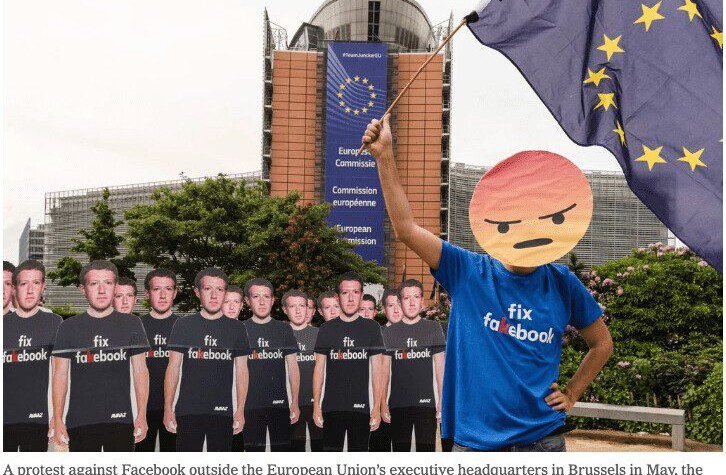
A.I. and Privacy Concerns Get White House to Embrace Global Cooperation
Two hallmarks of American economic policy under President Trump are a reflexive aversion for regulation and go-it-alone nationalism.
But in technology policy, that stance is changing.
In September, the Trump administration abandoned its hands-off approach and began working closely with the 36-nation Organization for Economic Cooperation and Development to create international guidelines for the design and use of artificial intelligence.
The administration has also started to discuss a new law to protect privacy in the digital age, seeking consensus domestically and common ground internationally. It has fielded more than 200 public-comment filings from advocacy groups, corporations and individuals.
“There is a real desire in the United States to see leadership at the federal level,” said David Redl, a senior Commerce Department official helping to guide the administration’s privacy effort.
On both issues, the administration has “moved from indifference to engagement,” said Julie Brill, a former commissioner at the Federal Trade Commission, who now helps oversee regulatory affairs for Microsoft. “It certainly has been welcome.”
The shift is a pragmatic recognition that regulations that will affect the nation’s tech industry and its citizens are coming, and that if federal officials want a say in them, they must participate.Surveillance cameras near a portrait of Mao Zedong in Beijing. China is using personal data and artificial intelligence as tools of a surveillance state.

China — which is not a member of the Organization for Economic Cooperation and Development — has gone its own way, using personal data and artificial intelligence as tools of a government-backed surveillance state. If the United States were another digital island, experts warn, there would be a real danger of a fragmented global marketplace.
Privacy can be seen as the first step toward regulating artificial intelligence more broadly. Vast volumes of data, often personal information, are the fuel of modern A.I. systems.
Several American states, led by California, have passed or proposed privacy laws, threatening to fragment the marketplace in the United States, too. They are following Europe, where a sweeping privacy law took effect in May, harnessing the popular backlash against American tech giants like Facebook and Google.
“Europe is saying, ‘We’re in charge,’ defining the global rules in the next iteration of the digital economy,” said Daniel Weitzner, a researcher at the Massachusetts Institute of Technology who was a policy adviser in the Obama administration.
The new European privacy law, known as the General Data Protection Regulation, lets people request their data online, restricts how businesses obtain and handle information, and opens a door to class-action-style lawsuits and huge fines.
Just how strict or effective enforcement will be remains to be seen. But other nations are adopting similar rules, and tech companies are retooling their data-handling software to comply. Last year, Europe and Japan agreed to allow personal data to flow freely between the two economies, since Japan’s rules were deemed the equivalent of Europe’s.
Mounir Mahjoubi, the French secretary of state for digital affairs, pointed to the European-Japanese pact as the “first impact worldwide” of the European standard.
Google’s chief executive, Sundar Pichai, testifying to a House committee in December. He was among the tech leaders who attended a private forum on “industries of the future” at the White House that month.CreditTing Shen for The New York Times

Mr. Redl of the Commerce Department said the administration had been prompted to seek a new privacy law by action in Europe and state legislatures. Though it has solicited public comments, the administration has not yet drafted a proposed law, and passage would require bipartisan support in Congress.
But the goal, Mr. Redl said, is…

















